Archive for July, 2009
Marita Liulia: Choosing My Religion – Uskontoja jäljittämässä
30 July 2009 | Mini reviews, Reviews
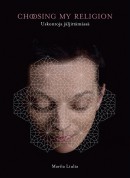 Choosing my Religion – Uskontoja jäljittämässä
Choosing my Religion – Uskontoja jäljittämässä
Käännökset englanniksi [English translations]: Michael Garner
Helsinki: Maahenki, 2009. 223 p., ill.
ISBN 978-952-5652-61-1
€ 38, hardback
Marita Liulia is a visual artist who specialises in interactive media art. Her works have been shown in more than 40 countries. Choosing my Religion discusses the nine major religions of the world. It contains 150 pictures and photographs, as well as texts by the artist and an article by associate professor of comparative religion Terhi Utriainen. The book, like the exhibition at Helsinki’s Kiasma museum which it accompanies, focuses on the religions and on animism. Liulia has travelled in 50 countries, studying religions and discussing them with both scholars and laymen. Her project concentrates on the possibilities of equal choice between religions and emphasises their positive aspects. The subject of the photographs in the book is the artist herself, who abandoned her Christian faith as a teenager. As a child she suffered from rheumatoid arthritis, and was unable to walk until she was 15. Liulia has portrayed herself in the traditional dress and emblems of the different faiths. In her view one of the features uniting all religions is the fact that in them women play the role of servants who pass on the faith to succeeding generations. Choosing my Religion comprises the book, the (touring) exhibition and a website.
Kaiken takana oli pelko. Kuinka Viro menetti historiansa ja kuinka se saadaan takaisin [Fear behind it all. How Estonia lost its history and how it will be recovered]
23 July 2009 | Mini reviews, Reviews
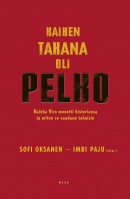 Kaiken takana oli pelko. Kuinka Viro menetti historiansa ja kuinka se saadaan takaisin
Kaiken takana oli pelko. Kuinka Viro menetti historiansa ja kuinka se saadaan takaisin
[Fear behind it all. How Estonia lost its history and how to get it back]
Toim. [Ed. by] Sofi Oksanen & Imbi Paju
Helsinki: WSOY, 2009. 563 p., ill.
ISBN 978-951-0-35111-6
€ 29, hardback
Twentieth-century Estonian history was marked by a brief German occupation (1918) and a Soviet occupation lasting nearly half a century (1940–1991). This book contains more than 30 articles by Finnish, Estonian, Russian, British and American experts in the field, dealing with with subjects that include the propaganda of the Soviet occupation, the methods of political oppression, environmental pollution, corruption and the situation of the arts and culture during the occupation. There are also previously suppressed memoirs and reminiscences by survivors of the Gulag prison camps. Sofi Oksanen (born 1977) is a Finnish writer of Estonian heritage who was awarded the 2008 Finlandia Prize for Fiction for her novel Puhdistus (‘Purge’), which is based on Estonian history. Imbi Paju (born 1959) is an Estonian film director and writer. The book deals with the morality of a totalitarian state in general, and examines how different contries have approached the concept of human rights violations in recent times. It has given rise to much debate about Finland’s relations with neighbouring Estonia and its people.
Food for thought
23 July 2009 | In the news
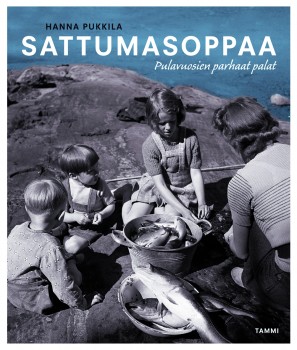
Dinner in a dash: surprise soup?
The flow of cookbooks into bookshops has recently – and universally – slowed down a little, as the internet provides more and more recipes for those wishing to experiment with cuisine.
Finland goes German
17 July 2009 | In the news
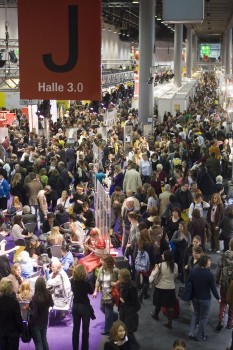
World of books: hustle and bustle at the Frankfurt Book Fair, 2008 - Photo: Fernando Baptista
Competition is hard in the book world, both nationally and internationally, so it’s big news that five years from now Finland will be the theme country at Frankfurt Book Fair, the world’s biggest encounter of those who work in the book publishing business.
Pleased to see me?
16 July 2009 | Columns, Tales of a journalist
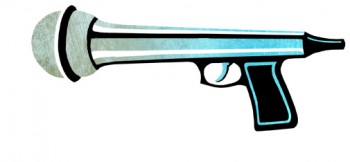
Illustration: Joonas Väänänen
When the Finnish media developed a crush on the country’s foreign minister, writes Jyrki Lehtola, no one could foresee the consequences. Especially if the object of their affections might begin to believe what they say about him…
It is a generally accepted truth that the spiteful media only raise people up in order to cast them down again a moment later.
Generally accepted truths are often not the case, although the media’s amorous relationships are, as a general rule, of short duration. More…
Lauri Timonen: Lähikuvassa Matti Pellonpää [Matti Pellonpää in closeup]
16 July 2009 | Mini reviews, Reviews
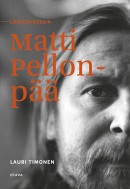 Lähikuvassa Matti Pellonpää
Lähikuvassa Matti Pellonpää
[Matti Pellonpää in close-up]
Helsinki: Otava, 2009. 335 p., ill.
ISBN 978-951-1-22903-2
€ 25, hardback
Matti Pellonpää (1951–1995) was one of the trusted actors, almost a trademark, of the film director Aki Kaurismäki. In 1993 he won the Felix Prize for best European male actor at the Berlin Film Festival for his role in La Vie de Bohéme. With his characteristic restrained empathy Pellonpää mostly played bohemians, unemployed people and outcasts. This portrait is built on the recollections of his friends and colleagues, as well as on the interviews by the author. These conversations deal with Pellonpää’s theatrical career and the musical experiments of his highly original band, Peltsix. The actor spent most of his free time in restaurants, where he eavesdropped on table talk and watched the eccentric personalities he encountered; the reader is also offered a sample of Pellonpää anecdotes.
Too beautiful
2 July 2009 | Extracts, Non-fiction
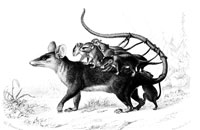
Illustration: The Universal Dictionary of Natural History (Paris, 1849)
